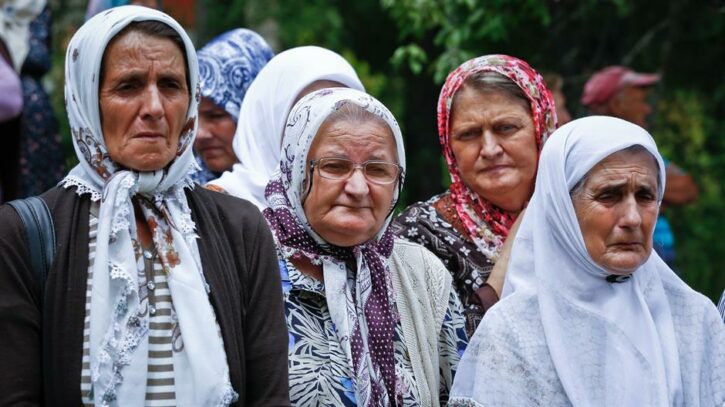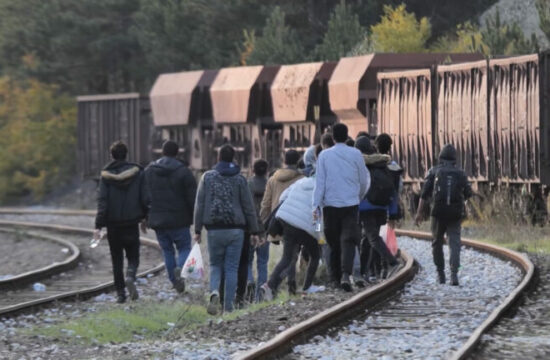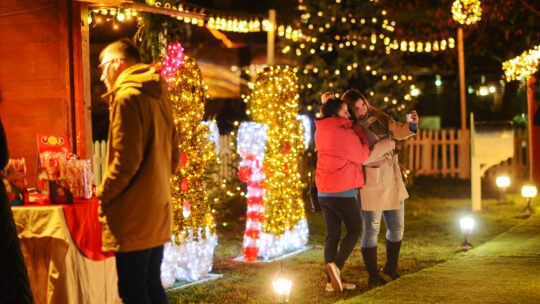
Families of genocide victims whose execution was videotaped by Serb paramilitary troops and later shown in the courtroom of the war crimes tribunal in The Hague gathered on Tuesday in the town of Trnovo, near Sarajevo, to commemorate the 1995 killing of the six Bosniaks by the Serbian paramilitary unit, the "Scorpions."
The families laid flowers and prayed at the execution site.
The executions were part of the mass killing of Muslim Bosniaks from Srebrenica after the town was overrun by Bosnian Serb forces.
More than 8,000 men and boys were killed in just a few days in a crime that was later labeled as an act of genocide by two international courts.
The Trnovo killings were first shown during the trial of the former Serbian President Slobodan Milosevic in front of the U.N. International Criminal Tribunal for the Former Yugoslavia in The Hague, Netherlands.
Milosevic was indicted for his alleged role in crimes committed during the Balkan wars, including the Srebrenica massacre, but claimed he had nothing to do with it.
Prosecutors showed the video during hearings to show that the killings were carried out by a paramilitary unit from Serbia called ‘the Scorpions,’ who were allegedly under orders from Serbian police in Belgrade.
The video showed six civilians taken from a truck with their hands tied behind their backs and lined up. Four were shot one by one. The remaining two had to carry the bodies into a barn before they themselves were shot.
The oldest victim was 36, while the youngest, Azmir Alispahic, was 16.
His mother, Nura Alispahic, told the Anadolu Agency with tears in her eyes that it is getting more and more difficult for her. She also had another son, Admir, who was 24 when he was killed by a Bosnian Serb mortar shell in Tuzla. Her husband was killed in Srebrenica.
Remzija Ibrahimovic, whose husband Smail was among the victims said all she knows is pain and sorrow.
“This crime is direct proof of the involvement of the Republic of Serbia, then called the Federal Republic of Yugoslavia, in the genocide, above all in Srebrenica, but also in the aggression on Bosnia and Herzegovina,” said Srebrenica's Deputy Mayor, Nermin Alivukovic.
The brother of Bekto Delic, Juso, was also killed by the unit in Trnovo when he was 25. He and his other brother, Sejdalija, also came to the commemoration.
Delic, who lost four brothers in the war, said he is happy that Bosniak member of the country's tripartite Presidency, Bakir Izetbegovic, is insisting that genocide denial cannot be tolerated.
“The most important message is that, if possible, the denial and the ‘pulling on the nerves’ of us survivors must be banned,” Delic said.
Commemorations have to be held because of future generations, who need to be aware of the past, he said.
“I thought the time will come when the Serb youth will simply come to their senses and say: ‘Yes, that's what it was’,” he said, insisting that what happened to Bosniaks in Srebrenica was genocide.
“Their leaders can say what they want, but there is clear evidence, clear recordings, there are clear names and surnames. It is not just Srebrenica. The problem are also Prijedor, Sanski Most, Bijeljina, Janja…” he said.
“We must not forget, it must be talked about,” he said.
The commander of the Scorpions, Slobodan Medic, and member Branislav Medic were sentenced to 20 years in prison for the crimes in Trnovo. Pero Petrasevic confessed to the crime and was sentenced to 13 years, and Aleksandar Medic was sentenced to five. Aleksandar Vukov was acquitted for lack of evidence.



